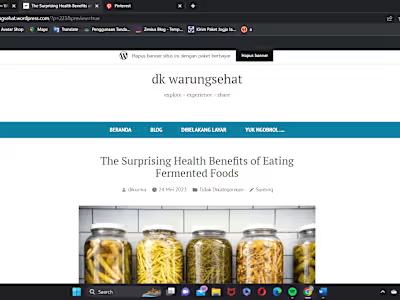Meal Plans: Definitions, Goals, Advantages, and Disadvantages

Meal planning is a strategic approach to organizing your meals in advance, typically for a specified period, such as a week or a month. It involves creating a structured outline of what you will eat, including specific recipes and ingredients. This blog post will provide an overview of meal plans, discussing their definitions, goals, advantages, and disadvantages. Throughout the article, relevant references will be cited to support the information provided.
Based on Nutrition.gov. (2021), Meal Planning. Retrieved from https://www.nutrition.gov/topics/healthy-living/meal-planning A meal plan refers to a predetermined schedule of meals, often created ahead of time, to guide individuals in their dietary choices. It outlines what to eat, when to eat, and portion sizes.
Meal plans can be customized to accommodate various dietary preferences, such as vegetarian, vegan, or gluten-free options. Meal plans serve several purposes, as mentioned at the Harvard T.H. Chan School of Public Health. (n.d.). Meal Planning. Retrieved from https://www.hsph.harvard.edu/nutritionsource/healthy-eating-plate/meal-prep Including :
Promoting Health: Structured meal plans can help ensure a balanced intake of essential nutrients, vitamins, and minerals, contributing to overall health and well-being.
Weight Management: Meal plans can be tailored to support weight loss or weight maintenance goals by controlling portion sizes and optimizing nutrient composition.
Time Efficiency: Planning meals in advance reduces the time spent on daily decision-making and grocery shopping, making simple way to stay healthy routine
Meanwhile, based on the American Heart Association (2021), Meal Planning. Retrieved from https://www.heart.org/en/healthy-living/healthy-eating/eat-smart/nutrition-basics/meal-planning For the benefits, we make a meal plan, namely
Improved Nutrition: By intentionally selecting nutritious foods and balancing meals, meal plans can help individuals meet their daily nutritional requirements.
Portion Control: Meal plans enable portion control, reducing the risk of overeating and supporting weight management goals.
Grocery Budgeting: Planning meals in advance allows for better grocery budgeting as you can make a detailed shopping list, avoid impulse purchases, and reduce food waste.
While meal plans can be beneficial, it’s important to be aware of potential drawbacks.
Lack of Flexibility: Strict adherence to a meal plan may limit spontaneity in dining choices and can be challenging to sustain in social or unpredictable situations.
Nutritional Variety: Without careful planning, meal plans may lead to a limited variety of foods, potentially missing out on some essential nutrients.
Individual Preferences: Meal plans may not cater to individual taste preferences or dietary restrictions, making adherence more difficult for some individuals. The above can be read from the Mayo Clinic (2021). Meal Planning: Benefits and Tips Retrieved from https://www.mayoclinic.org/healthy-lifestyle/nutrition-and-healthy-eating/in-depth/meal-planning/art-20048278
Example Meal Plan for One Week:
Monday:
Breakfast : Overnight oatmeal with banana , chia seed, chocolate and coconut milk.
Lunch : steam spinach , grill mushroom, grilled chicken breast.
Snack : mango slice
Dinner : Smoke Chicken , broccoli and mushroom stir fry
Dessert: Dark chocolate squares.
Tuesday:
Breakfast : Scrambled eggs with spinach and whole toast
Lunch : Vegetables and tuna salad , feta cheese and a lemon vinaigrette ,
Snack: Carrot sticks with hummus.
Dinner : Grilled salmon with sweet potato wedges and steamed corn
Dessert: Mixed berries with a dollop of whipped cream.
Continue the meal plan with similar breakfast, lunch, snack, dinner, and dessert options for the remaining days of the week, ensuring variety and balance.
Conclusion, Meal planning can be a valuable tool for individuals seeking to improve their dietary habits, achieve specific health goals, and optimize their time and resources. By understanding the definitions, goals, advantages, and disadvantages of meal plans, individuals can make informed decisions about incorporating them into their lifestyle. Remember that meal plans should be flexible and personalized to suit individual needs and preferences. Consulting with a registered dietitian or nutritionist can provide further guidance and ensure optimal nutrition while using meal plans as part of a healthy lifestyle.
Like this project
Posted Jul 3, 2023
Meal planning is a strategic approach to organizing your meals in advance, typically for a specified period, such as a week or a month. It involves creating a …
Likes
0
Views
881





